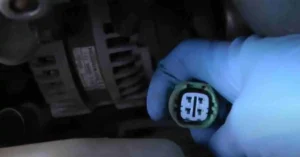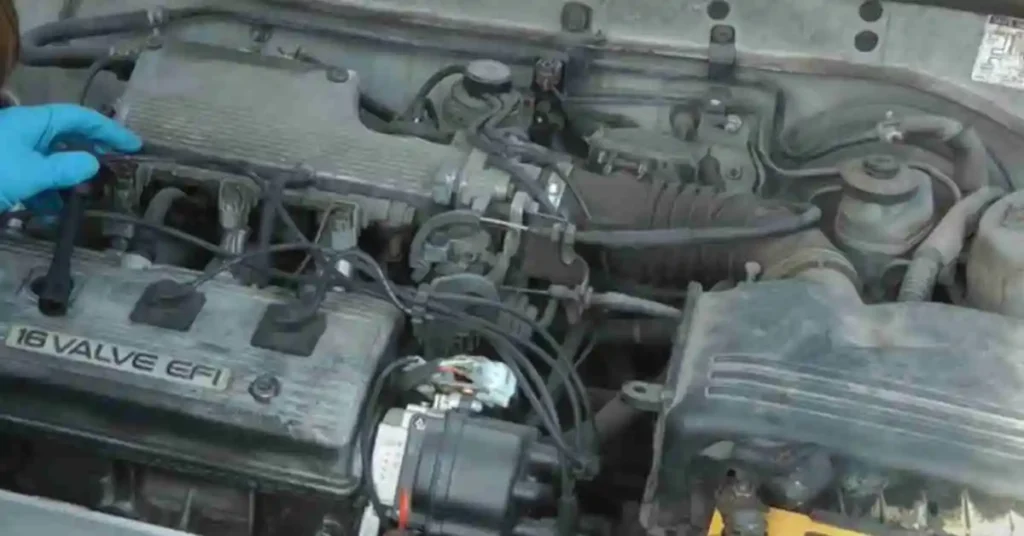Have you ever had issues with corrosion or poor contact at your car’s battery terminals? If you’ve dealt with a battery that’s hard to start or shows signs of corrosion, you may be wondering if there’s an easy fix. One solution that’s often recommended is dielectric grease on battery terminals. While it might sound like a small, simple step, the benefits of dielectric grease are pretty significant when it comes to protecting your battery and ensuring it runs smoothly.
In this article, we’ll explore into what dielectric grease is, why you should use it on your battery terminals, and the results I’ve experienced after applying it. Trust me, after reading this, you might just want to head straight to your car and apply some dielectric grease yourself.

What Is Dielectric Grease on Battery, and Why Use It on Battery Terminals?
Dielectric Grease on Battery is a silicone-based compound designed to insulate and protect electrical connections. Unlike conductive greases, dielectric grease does not conduct electricity. This makes it ideal for use in situations where you want to protect connections from moisture, dirt, and corrosion without causing short circuits.
When applied to battery terminals, dielectric grease on battery acts as a barrier to prevent moisture and air from reaching the metal surfaces of the terminals. This is crucial because moisture can lead to corrosion, which hampers the connection between the battery and cables. Corrosion on battery terminals is one of the leading causes of poor battery performance and difficult starts.
I first learned about the power of dielectric grease from a friend who’s a car enthusiast. After applying it to his battery terminals, he noticed a drastic improvement in performance—no more corrosion buildup and no more issues starting the car in cold weather. It sounded almost too good to be true, but after trying it myself, I was convinced.
Why Is It Important to Use Dielectric Grease on Battery Terminals?
Using dielectric grease on battery terminals may seem like an extra step, but it actually offers several important benefits. Here’s why it’s worth considering for your car:
1. Prevents Corrosion
Battery terminals are exposed to moisture and extreme temperatures, both of which can cause corrosion. When corrosion builds up on the terminals, it creates a layer of rust or white powdery substance that disrupts the flow of electricity. This can lead to issues such as poor performance, slow cranking, or even a dead battery. Applying dielectric grease creates a protective layer that prevents moisture from penetrating and causing corrosion. I noticed that after using it, my battery terminals stayed clean and free from that annoying white corrosion buildup.
2. Improves Electrical Connection
A clean and corrosion-free battery terminal ensures the best possible electrical contact. If your terminals are corroded, even a small layer of rust can interfere with the connection between the battery and cables, leading to poor vehicle performance. By applying dielectric grease, you ensure that the electrical connection remains strong and efficient, even in harsh weather conditions. The grease provides a thin layer of protection that helps the metal to maintain its conductivity without interrupting the flow of electricity.
3. Protects Against Harsh Weather Conditions
Dielectric grease is water-resistant, making it particularly useful in areas with high humidity or rain. Whether you live in a rainy climate or one with freezing temperatures, dielectric grease can protect your battery terminals from the elements. I live in an area where freezing temperatures are common in winter, and I’ve found that dielectric grease helps prevent battery problems during the colder months.
4. Extends Battery Life
By preventing corrosion and maintaining a clean electrical connection, dielectric grease can help extend the life of your battery. This means fewer trips to the mechanic for battery replacements and a smoother overall driving experience. After using it on my battery terminals, I noticed my car’s battery lasted longer before showing signs of wear. It’s a simple, low-cost way to get more mileage out of your battery.
Different Types of Solutions I’ve Tried for Battery Terminals
While dielectric grease is a popular choice for protecting battery terminals, it’s not the only solution out there. Over the years, I’ve tried a few different products, and here’s a rundown of the ones I’ve used.
1. Traditional Grease
I’ve tried using regular automotive grease on battery terminals in the past, hoping it would prevent corrosion. While it does work to a certain extent, traditional grease tends to attract dirt and debris, which can end up doing more harm than good. After a while, the dirt can mix with the grease, leading to a messy buildup that’s hard to clean. The grease also doesn’t do as well at insulating the terminals from moisture, which can lead to corrosion over time.
2. Battery Terminal Protector Spray
There are several sprays available on the market that are specifically designed to protect battery terminals. These sprays typically create a protective film that prevents corrosion. While some of them are effective, I found that the protection isn’t as long-lasting as dielectric grease. Additionally, the spray tends to wear off more quickly, especially in harsh weather conditions.
3. No-Name Grease Products
I’ve also experimented with off-brand grease products. While they may be cheaper, they don’t always perform as well as dielectric grease. Some of them even caused a sticky residue that attracted dirt and grime, which ultimately negated any benefits they provided. Dielectric grease, on the other hand, has been consistently reliable and easy to apply, with no mess or residue left behind.
4. Dielectric Grease (My Go-To Solution)
After trying several alternatives, dielectric grease has become my go-to solution for battery terminal maintenance. It provides long-lasting protection against corrosion, doesn’t attract dirt, and is water-resistant. The application is simple, and it works wonders in all weather conditions. The fact that it also doesn’t conduct electricity means I don’t have to worry about causing any shorts or electrical issues, which is a huge bonus.
FAQs About Dielectric Grease on Battery Terminals
Where Should You Not Use Dielectric Grease?
Dielectric grease should not be used on connectors where electrical flow is crucial. Avoid applying it to areas like fuse boxes, switches, or sensors that need a direct electrical connection. While it works wonders for insulating and protecting battery terminals, it can hinder the performance of connections that require full conductivity.
What Kind of Grease to Put on Battery Terminals?
The best type of grease for battery terminals is dielectric grease, specifically designed for electrical connections. It prevents corrosion, reduces voltage loss, and creates a protective barrier without affecting the current flow. Be sure to use a non-conductive grease that’s safe for electrical components.
What Are the Benefits of Applying Dielectric Grease to Battery Terminals When Servicing?
Applying dielectric grease to your battery terminals during servicing offers several key benefits:
Prevents corrosion – Stops battery acid from corroding terminals.
Improves conductivity – Ensures a stable connection by reducing the chances of voltage loss.
Increases battery lifespan – By keeping terminals clean and protected, you reduce the chances of wear and tear over time.
Is Too Much Dielectric Grease Bad?
Yes, too much dielectric grease can cause issues. Excess grease can accumulate, attracting dirt and grime, which might lead to a messy buildup. It can also make the connection loose if not applied correctly, potentially causing power loss or erratic performance. A thin, even layer is ideal.
Where to Put Dielectric Grease on a Battery?
Dielectric grease should be applied directly to the battery terminals—the metal parts where the cables connect to the battery. Apply a thin layer over the exposed metal of the positive and negative terminals to prevent corrosion, but avoid getting grease on the cable connections themselves.
Is Battery Terminal Grease Dielectric Grease?
Yes, battery terminal grease is often a form of dielectric grease. It’s designed specifically to protect the battery terminals from corrosion and ensure a reliable connection. Make sure to use a grease labeled as safe for electrical connections to avoid any issues with conductivity.

